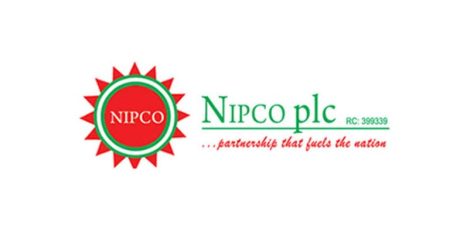The Ghana Investment Promotion Centre (GIPC) is poised to reshape the landscape of foreign investment in Ghana through a proposed new Investment Promotion Act. This legislative overhaul aims to streamline investment procedures, enhance regulatory clarity, and foster a more conducive business environment. A key element of the proposed Act is the revision of capital requirements for foreign-owned businesses. While the current Act mandates a minimum capital investment of $500,000 for foreign companies, the proposed revision will eliminate this blanket requirement for most sectors, retaining it only for foreign-owned trading companies. This change is anticipated to reduce barriers to entry for foreign investors, encouraging greater participation in diverse sectors of the Ghanaian economy while maintaining necessary oversight in the trading sector. The GIPC believes this targeted approach will better align with the needs of modern investors and promote a more dynamic investment climate.
The proposed Act also addresses concerns surrounding Technology Transfer Agreements (TTAGs), specifically those raised by registered financial institutions. Current TTAG guidelines have presented challenges, and the GIPC is committed to resolving these through the new legislation. The aim is to establish a more efficient system for the registration and monitoring of TTAGs, facilitating smoother technology and knowledge transfer between foreign and local businesses. This streamlined process is expected to promote innovation and technological advancement within Ghana while safeguarding the interests of all parties involved. Furthermore, the GIPC recognizes the need for inter-agency collaboration to minimize bureaucratic hurdles for investors. The proposed Act will pave the way for closer cooperation with other sector regulators, harmonizing approval processes and reducing delays that have historically frustrated investors. This collaborative approach will create a more seamless and predictable regulatory environment, encouraging investor confidence and reducing the time required to establish and operate businesses in Ghana.
The GIPC’s transition from a Centre to an Authority under the proposed Act represents a significant shift in its role. This transition will empower the GIPC with expanded regulatory and promotional powers, enabling it to more effectively oversee investment activities and actively promote Ghana as a preferred investment destination. This enhanced authority will allow for more proactive engagement with investors, facilitating their entry into the Ghanaian market and providing ongoing support for their success. The proposed Act will also clarify the definition of technology transfer agreements, ensuring that these agreements involve a transfer from a foreign-based enterprise to a Ghanaian-registered company. This clarity will provide a solid legal framework for technology transfer, protecting the interests of both foreign and local businesses and encouraging mutually beneficial partnerships.
Furthermore, the GIPC has actively engaged with stakeholders to ensure the proposed Act reflects the needs and concerns of the business community. Through stakeholder engagements, the GIPC has gathered valuable input, allowing them to refine the proposed legislation and ensure its effectiveness in promoting investment and fostering economic growth. This collaborative approach underscores the GIPC’s commitment to transparency and its recognition of the importance of engaging with the private sector in shaping investment policies. The proposed Act also emphasizes the importance of technology and intellectual property transfers. By providing clearer provisions for these types of transfers, the Act aims to attract foreign investment in these critical areas, promoting innovation and technology adoption within Ghana. This focus on technology transfer will contribute to the development of a more knowledge-based economy and enhance Ghana’s competitiveness in the global marketplace.
The revised Act’s removal of the blanket capital requirement for foreign investors, with the exception of trading companies, signals a significant step towards creating a more open and accessible investment environment. This change is expected to attract a wider range of investors, particularly small and medium-sized enterprises, which may have previously been deterred by the capital requirement. By lowering the barrier to entry, the GIPC aims to diversify the types of foreign investment entering Ghana, promoting greater participation in sectors beyond traditional areas of focus. The focus on streamlining regulatory processes and enhancing inter-agency collaboration will further contribute to a more investor-friendly environment. By reducing bureaucratic hurdles and improving the efficiency of the approval process, the GIPC aims to make it easier for businesses to establish and operate in Ghana, fostering a more competitive and attractive investment climate.
In conclusion, the proposed Ghana Investment Promotion Act represents a comprehensive effort to modernize and enhance the investment landscape in Ghana. Through revisions to capital requirements, clarification of technology transfer agreements, streamlined regulatory processes, and enhanced inter-agency collaboration, the GIPC aims to create a more conducive environment for foreign investment. These changes are anticipated to stimulate economic growth, promote innovation, and create new opportunities for both foreign and local businesses. The transition of the GIPC from a Centre to an Authority further strengthens its capacity to effectively regulate and promote investment, positioning Ghana as a premier destination for foreign capital and fostering sustainable economic development.














